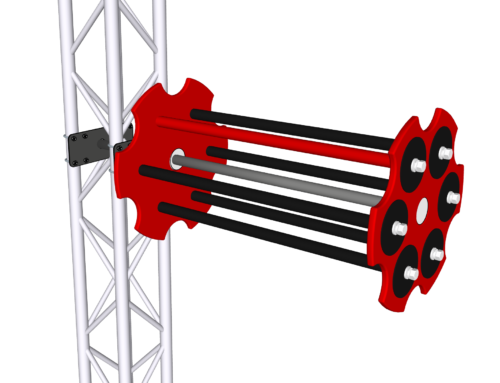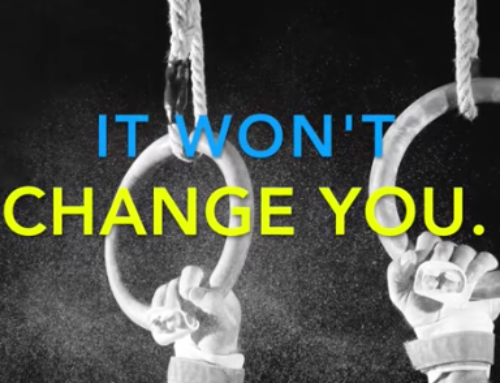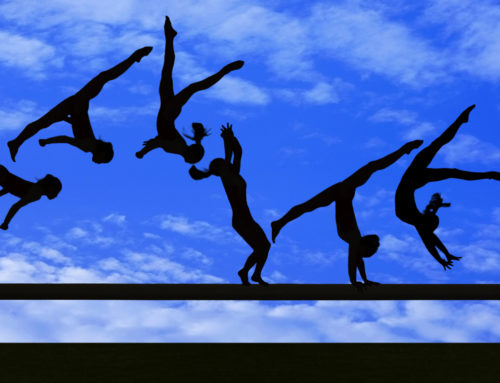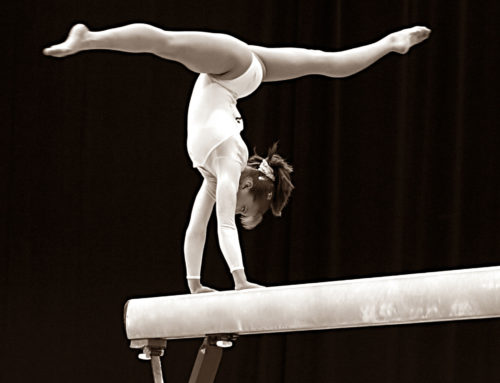If you are in the sport of gymnastics, I’m going to assume you are sticking to it quite simply because you love it. Let’s face it, gymnastics is not for the faint of heart. Typically, those starting out find out pretty quickly if it’s the right sport for them. It takes a very dedicated athlete to tolerate having hands like a lumber jack, constantly bathing in chalk, doing massive amounts of strength training, and spending 3 to 4 hours a day in a gym.
However, no matter how much you love it, everyone has that one thing they could do without. You know what I’m talking about. Whenever the words come out of your coach’s mouth that it’s time to do xyz, you absolutely cringe. It might be a certain apparatus, a particular skill you are working on or maybe conditioning. If you happen to be one that loves every single thing about the sport, I want to meet you!
Well, I’m here to tell you it’s ok and perfectly normal to have these feelings. It’s hard to enjoy everything in a sport that involves so much. I admit, I had this deep hatred for one of the apparatuses and I had it bad. This event kept me up at night. When I made eye contact with it at the gym, I would feel sick to my stomach. I swear I could hear it taunting me sometimes (ok, maybe that’s a stretch). I was so desperate to avoid it, I wanted to organize a late night operation to sneak in and haul it off in a truck and dump it in the lake just so I could go one practice day without having to look at it. What was this evil adversary of mine? This photo will give it away:
How did I develop such a strong dislike for something in a sport that I enjoyed. The answer is probably common to anyone else who has these similar feelings. Pommel horse was harder for me than any other event….by a long shot. It provided the biggest challenge for me and therefor caused me the most frustration. I can’t tell you how many times I nearly broke a toe after kicking it in anger (my coach didn’t care for that little gesture too much). I don’t advise doing that 🙂
I had completely psyched myself out when it came to pommel horse so I pretty much shut down when it was train on it. 90 percent of the problem was in my head. That means I could have helped make this problem go away if I knew some simple techniques to apply. So, one can assume if you start to see improvements with your problem, you may start to change how you feel about it, right? Here are 3 things you should be doing:
1. Identity small problem areas within the major problem and develop a plan
You’re probably thinking, “hey, isn’t my coach already doing this for me?” Of course, but there are always things that aren’t easily noticed by your coach that only you may be aware of.
For example, a big problem (which didn’t seem to hit me at the time) with me on pommel horse was my shoulder flexibility. I had (and still do) the worst shoulder flexibility in the history of gymnastics. Reaching back for a pommel and lifting up in my chest was nearly impossible for me, making my circles pretty rough. Bad circles, of course, led to bad everything else. It would have been extremely beneficial for me if I could have identified this and then made a plan to spend 30 extra minutes every day outside of the gym on shoulder flexibility. This would have led to small improvements and positive feelings each day, slowly eliminating the bad energy associated with pommel horse. These little problems are typically something you want to try to attack in your spare time if possible. In other words, I would’t want to waste gym time on 30 minutes of shoulder stretching.
It could also be a certain fear that you are holding in that coach isn’t aware of. ALWAYS communicate with your coach so you can come up with a plan together. Your coach will be able to help you develop a plan to help alleviate those fears.
2. Shoot for small victories within your problem each day
You’ve identified your small problems, developed a plan, now each day aim for small victories.
Don’t put so much pressure on yourself with making huge gains immediately. Find something small and reasonable each day that you can improve at practice. It could be as simple as focusing on getting your hips turned in a circle or keeping your legs together consistently on a cast handstand. Small victories allow you to leave that day with a sense of accomplishment as opposed to beating yourself up over not nailing a big new skill on day one, for example. You will also get praise from coach, making it even more of a positive experience for you.
3. Tell yourself the complete opposite of how you normally feel about the problem
This sounds goofy, but it has a tremendous impact on how you will feel and how you perform on the apparatus or skill that day. Literally do the opposite of the photo above. Say to yourself, “bring on pommel horse! I can’t wait to get after that thing today! Let’s do it! I’ve got this!” You get the idea. See it as a challenge and embrace it. Have fun going after your small, predetermined victory of the day. High five coach right after you do it. Your coaches will be there to encourage you and pump you up.
The mind is so powerful, and if you approach your training with defeated thoughts, that’s exactly what will happen. Do yourself a favor and start changing your mindset to productive and uplifting thoughts. Trust me, I didn’t do this when I was in gymnastics and I definitely saw the effects of a negative attitude.
This is just one piece of the puzzle that can help transform your athletic performance. These simple changes just may give you new found love for the apparatus you once loathed. Now go get em!
Brad Thornton
Strength & Fitness Team Lead
www.GymnasticsStrength.com







Leave A Comment